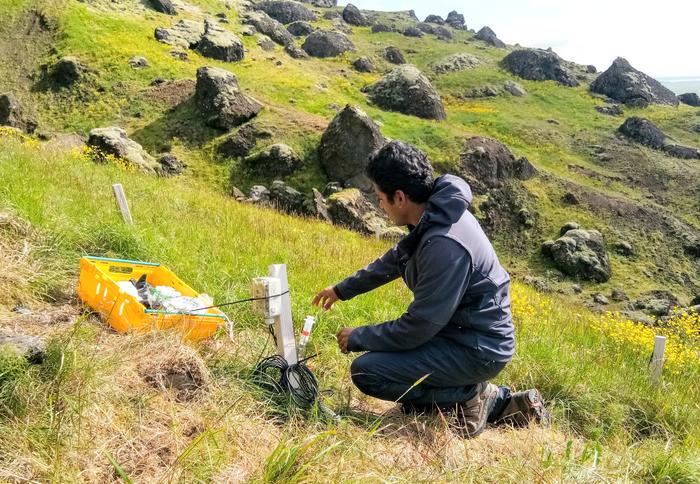Subarctic ecosystems store large amounts of carbon. As the climate continues to warm, more and more carbon is being released into the atmosphere. There are large uncertainties concerning the extent to which the loss of carbon from soil can be compensated by the uptake of carbon through plant photosynthesis: “After all, if warming increases the decomposition of soil organic matter and thus also the supply of nutrients to plants, then plants should grow better and absorb more carbon dioxide from the atmosphere,” says Michael Bahn of the Department of Ecology at the University of Innsbruck. “Surprisingly, this may not be the case, as our recent study shows.”

Credit: Universität Innsbruck
Subarctic ecosystems store large amounts of carbon. As the climate continues to warm, more and more carbon is being released into the atmosphere. There are large uncertainties concerning the extent to which the loss of carbon from soil can be compensated by the uptake of carbon through plant photosynthesis: “After all, if warming increases the decomposition of soil organic matter and thus also the supply of nutrients to plants, then plants should grow better and absorb more carbon dioxide from the atmosphere,” says Michael Bahn of the Department of Ecology at the University of Innsbruck. “Surprisingly, this may not be the case, as our recent study shows.”
Natural climate lab
Geothermal rifts in Iceland provide ideal conditions for researchers to explore the longer-term effects of climate warming on ecosystems in the far north. A team led by Michael Bahn used a geothermally active site in Iceland as part of an international project to study the effect of warming and nitrogen supply on the carbon cycle. „The research plots were located at different distances from the rift line and, accordingly, warmed to a greater or lesser extent,” Michael Bahn explains. „By fertilizing part of the plots with nitrogen we were able to study the interactive effects of warming and nitrogen supply on the carbon cycle.”
Warming accelerates the carbon cycle
Warming led to a massive loss of carbon in the soil. „In the area we studied in Iceland, up to 40 percent of the carbon was released into the atmosphere in the first few years after warming,” says Michael Bahn. „In the subsequent years, the microbial biomass adjusted and the soil carbon balance stabilized again.” To understand the path carbon takes in this cycle from the atmosphere through the plants and soil and back to the atmosphere, the research team added the stable carbon isotope 13C during the experiment. „Using the isotope, we were able to trace the path of the carbon as it moves through the ecosystem”, explains the ecologist. „We observed that with increasing warming, the carbon taken up by the plants was transferred more strongly to the microbes and released more rapidly from the soil. From the fertilization experiments it can further be concluded that under warming plant productivity became increasingly nitrogen limited. In consequence, the photosynthetic uptake of carbon dioxide by the ecosystem decreased. As warming also accelerated the release of carbon from soil, the ecosystem’s ability to store carbon was thus gradually reduced.”
The results were recently published in Global Change Biology. The research was financially supported by the Austrian Science Fund FWF and the European Union, among others.
Journal
Global Change Biology
DOI
10.1111/gcb.16851
Method of Research
Observational study
Article Title
Individual and interactive effects of warming and nitrogen supply on CO2 fluxes and carbon allocation in subarctic grassland
Article Publication Date
10-Jul-2023




